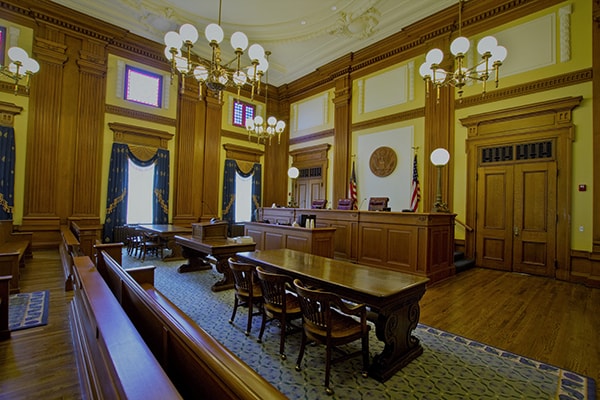Appellate review remains as a pivotal stage inside the legal system, giving a component to parties dissatisfied with a court’s decision to look for change and correction. In criminal cases, this review becomes particularly significant, offering litigants the potential chance to challenge errors or anomalies that might have happened during preliminary or condemning.
It fills in as a protection to ensure fairness, maintain the rule of law, and redress any legal stumbles that could impact a singular’s rights and opportunities.
Understanding the Role of Criminal Appeal Attorneys
Criminal appeal attorneys are legal experts specializing in exploring the complexities of the appellate review process. Their expertise encompasses a deep understanding of considerable laws, procedural rules, and case precedents relevant to appellate proceedings.
These attorneys play a crucial role in analyzing preliminary records, distinguishing expected errors, and crafting persuasive legal arguments pointed toward getting appellate reviews and favorable outcomes for their clients.
The Meaning of Recognizing Errors and Legal Issues
A fundamental part of the work embraced by criminal appeal attorneys in Texas rotates around distinguishing errors or legal issues that might have impacted the outcome of a preliminary. This meticulous review encompasses analyzing preliminary records, proof, court decisions, and procedural perspectives to pinpoint possible reasons for appeal.
Normal issues that might warrant appellate review incorporate ill-advised jury directions, evidentiary errors, sacred infringement, condemning inconsistencies, or procedural abnormalities.
Crafting Persuasive Legal Arguments
Building a convincing case for appellate review requires something other than distinguishing errors — it requires the capacity to craft persuasive legal arguments. These legal warriors influence their insight into relevant laws, precedents, and legal standards to build cognizant and persuasive arguments for appellate judges.
This includes analyzing complex legal issues, highlighting legal errors or injustices, and presenting a clear and logical rationale for why the lower court’s decision ought to be reconsidered or changed.
The Thorough Nature of Appellate Review
The appellate review encompasses a broad assessment of the fundamental proceedings, legal arguments, and material laws. It incorporates a cautious evaluation of current real factors and conditions including the case, as well as an appraisal of the lower court’s use of the law.
Appellate courts have the power to review both legal errors (errors in the application or understanding of the law) and authentic errors (errors in the assessment of verification or real factors) that could have impacted the outcome of the case.
Exploring Procedural Complexities and Timelines
Appealing a criminal conviction or sentence includes exploring a series of procedural complexities and severe timelines. Criminal appeal lawyers are capable of complying with procedural prerequisites, including filing the notice of appeal inside recommended cutoff times, designing appellate briefs as indicated by court rules, and following oral argument conventions.
The inability to adhere to these procedural viewpoints can result in the dismissal of an appeal, highlighting the significance of meticulous legal representation.
The Impact of Appellate Decisions on Legal Precedent
Appellate decisions hold significant influence in shaping legal precedent and guiding future cases. A favorable appellate decision can start a trend, explaining legal standards, interpreting resolutions, or establishing new legal standards.
Alternatively, an unfavorable decision can build up existing legal understandings or limit the extent of legal arguments. The precedential worth of appellate decisions stretches out past individual cases, impacting the advancement of jurisprudence and legal standards.
Challenges Faced by Criminal appeal attorneys
Criminal appeal lawyers in Texas experience different challenges in advocating for their clients on appeal. These challenges might incorporate resolving complex legal issues, countering arguments from contradicting counsel, exploring developing legal standards, and tending to precedent-setting cases.
To overcome these challenges, appeal attorneys utilize strategic methodologies like exhaustive legal examination, meticulous case analysis, persuasive oral arguments during appellate hearings, and collaboration with experts in relevant fields.
Public Interest and the Role of Appellate Review
In past individual cases, appellate review serves the greater public interest by ensuring the integrity and consistency of the legal system. Precedent-setting appellate decisions contribute to the headway of legal standards, guide lower courts in interpreting laws, and advance consistency in legal understandings.
By empowering straightforwardness, obligation, and adherence to legal standards, appellate review supports public trust in the judicial process and keeps up with the standards of justice and fairness.
Concluding Remarks: Brownstone Appeal Lawyers’ Obligation to Excellence
In synopsis, the appellate review process remains a fundamental mainstay of the legal system, giving a crucial pathway to redressing legal errors, maintaining individual freedoms, and advancing justice. Criminal appeal attorneys, exemplified by the group at Brownstone Appeal Lawyers, stand firm on a pivotal footing in exploring this process, vigorously advocating for their clients’ opportunities, and ensuring that appellate courts think about all relevant legal arguments.
Through careful analysis, convincing advocacy, and a pledge to excellence, Brownstone Appeal Lawyers endeavors to accomplish favorable outcomes for their clients, all while maintaining the standards of fairness, due process, and legal integrity.

